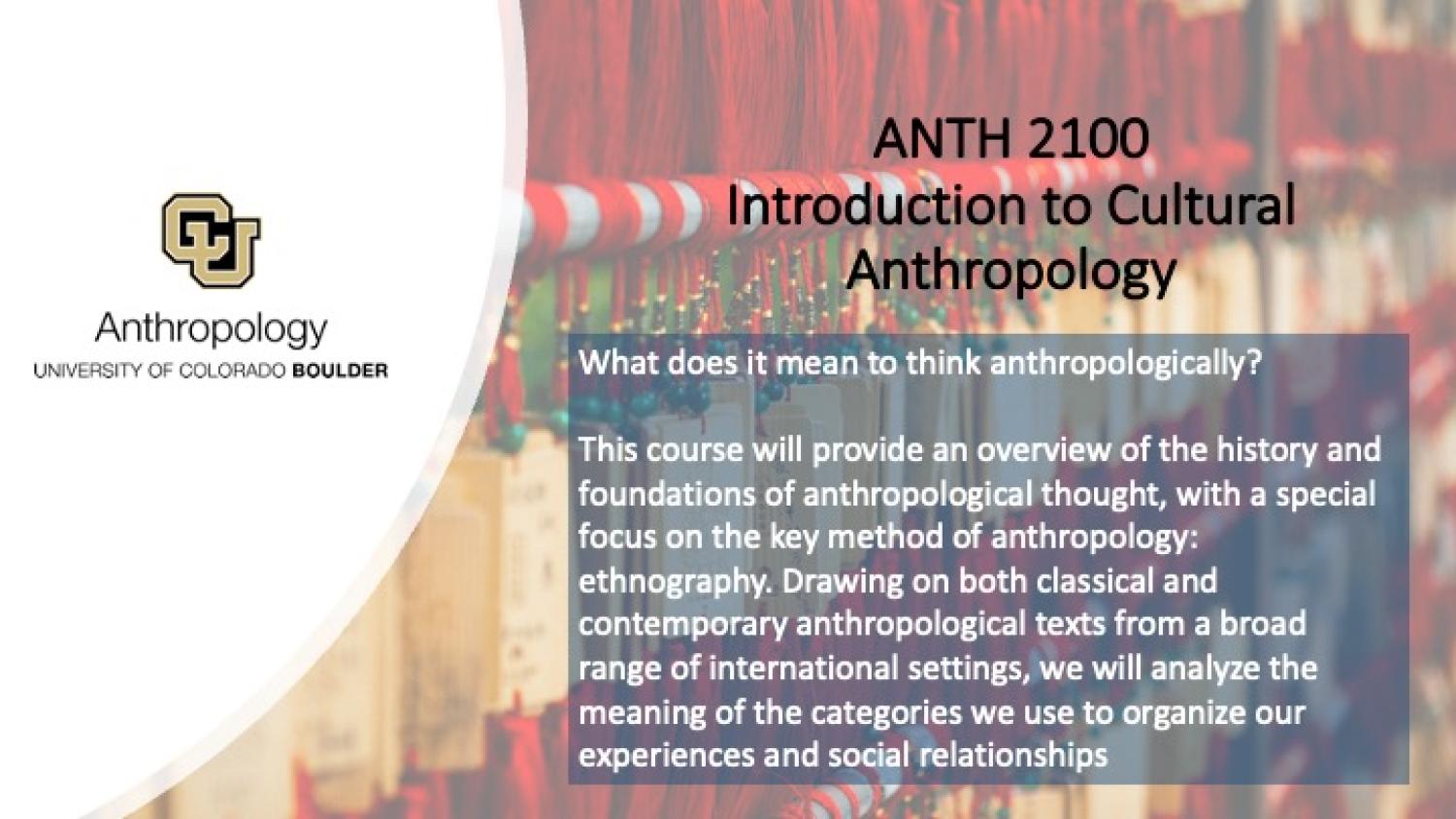What does it mean to think anthropologically? This course will provide an overview of the history and foundations of anthropological thought, with a special focus on the key method of anthropology: ethnography. Drawing on both classical and contemporary anthropological texts from a broad range of international settings, we will analyze the meaning of the categories we use to organize our experiences and social relationships. Topics will include: the "culture" concept, particularly in relation to ideas of difference, relativism, translation, and individual and group identity; the role of language, narrative, and interpretation in the constitution of the self and the social world; symbols, metaphors, and ideologies as forms of power and vehicles for social transformation; ethnographic methods, ethics, and techniques of anthropological research and fieldwork; and cross-cultural comparisons of systems of kinship, gender/sex/sexuality, labor and economic exchange.
See the University Catalog for specifics, recommendations, and prerequisites.

